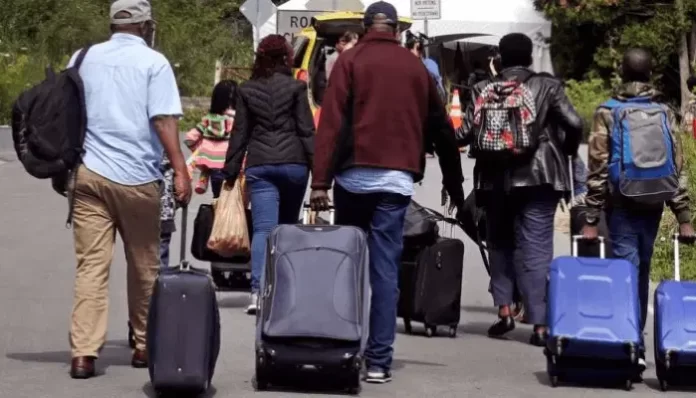Nigerians planning to study or work in the United Kingdom may soon face tougher immigration measures, as the UK government considers new policies aimed at curbing visa misuse.
Sources within the UK’s Home Office and Whitehall have confirmed that Nigeria, along with Pakistan and Sri Lanka, are being flagged for heightened scrutiny under the proposed regulations. Officials believe citizens from these countries are more likely to overstay their visas or file asylum claims after legally entering the country.
According to The Guardian, British authorities are collaborating with the National Crime Agency (NCA) to develop profiling models that help predict which applicants may later seek asylum.
Nearly 10,000 individuals who initially entered the UK on valid student or work visas reportedly sought asylum last year, leading to a growing concern about visa abuse.
Government data released in March revealed that many asylum seekers now in state-sponsored housing—like hotels—originally entered the UK through legal immigration routes. The majority were from Nigeria, Pakistan, and Sri Lanka.
In response, the UK government is reportedly planning to cut down on the number of student visa holders who later apply for asylum.
Part of the new process could involve analyzing financial documents submitted during visa applications to assess the risk of future asylum claims.
As reported by The Times, the Home Office is working to enhance intelligence gathering so immigration officers can identify patterns and red flags in applicants’ profiles.
This effort could ultimately result in some visa applications being denied upfront if an applicant is deemed likely to exploit the system.
Madeleine Sumption, Director of the Migration Observatory at the University of Oxford, noted that the success of the plan hinges on the quality of intelligence used to build such models.
“It’s difficult to assess from the outside whether authorities can reliably predict who may later seek asylum,” she explained. “It could be impactful if clear patterns exist, but it could also risk leading to arbitrary decisions if the data isn’t precise.”
While the initiative raises concerns about potential discrimination, Sumption added that the UK government generally has broad discretion over who is granted entry on work and study visas, although some legal challenges could still arise.



